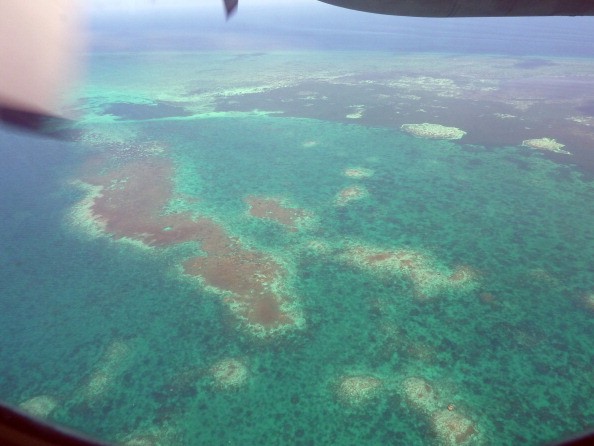Sharp increases in the sea temperature rise could cause another “devastating” loss of South China Sea corals, scientists warn.
According to experts, 40 percent of coral at the Dongsha Atoll in the South China Sea has died. For at least 40 years, nothing as grave has occurred on Dongsha.
High water temperatures for the years 2015 to 2016 were damaging for reef systems around the globe, including Dongsha, said Ann Cohen of Woods Hole Oceanographic Institution in Massachusetts, U.S.
In 2016, the famous Great Barrier Reef in Australia suffered from the worst coral bleaching on record. Coral bleaching is a process where corals become white and may die, as high water temperatures cause corals to drive out the algae they consume.
In March, the Australian government has verified the widespread coral bleaching--the fourth in history--on the Great Barrier Reef.
Cohen said that the barrier reef has received a lot of attention, but other reefs around the globe had also severely suffered.
"The 2015/2016 El Nino was devastating for reef systems in other parts of the world as well, including Dongsha Atoll and reefs in the central Pacific, where some of the most pristine coral reefs are located and of course, the U.S. Pacific Remote Marine National Monument," Cohen said, mentioning that they have also observed devastating bleaching in the area.
Observations of three major die-offs of Great Barrier Reef corals in 2016, 2002 and 1998 were published by scientists just last week. According to the studies, the only way to save the coral reefs is to take drastic measures to cut global warming.
These findings are supported by the study of the Dongsha Atoll, which was reported in the Scientific Reports journal.
"Based on what we observed on Dongsha, a 2-degree cap on ocean warming may not be enough to save coral reefs," said Cohen.
"This is because coral reefs are shallow water ecosystems and a tweak in the local weather can turn that 2 degrees Celsius into a 6 degrees Celsius warming," she explained.
The Dongsha Atoll is situated in the South China Sea, close to south-eastern China and the Philippines. The area has abundant marine life and is considered as one of the most important coral reefs in the world.
A 2-degree Celsius increase in temperature by itself was not likely to bring about prevalent damage to Dongsha coral reefs.
However, a high-pressure system instigated temperature spikes to 6 degrees, which lead to the death of 40 percent of the corals in a span of six weeks.
Experts disagree of the “overly optimistic” predictions of the future coral reefs. They say that the predictions may not apply for some reefs located in shallow waters.
Communities must now work together to combat global warming. This is the only way for South China Sea corals and other reefs to survive.



























